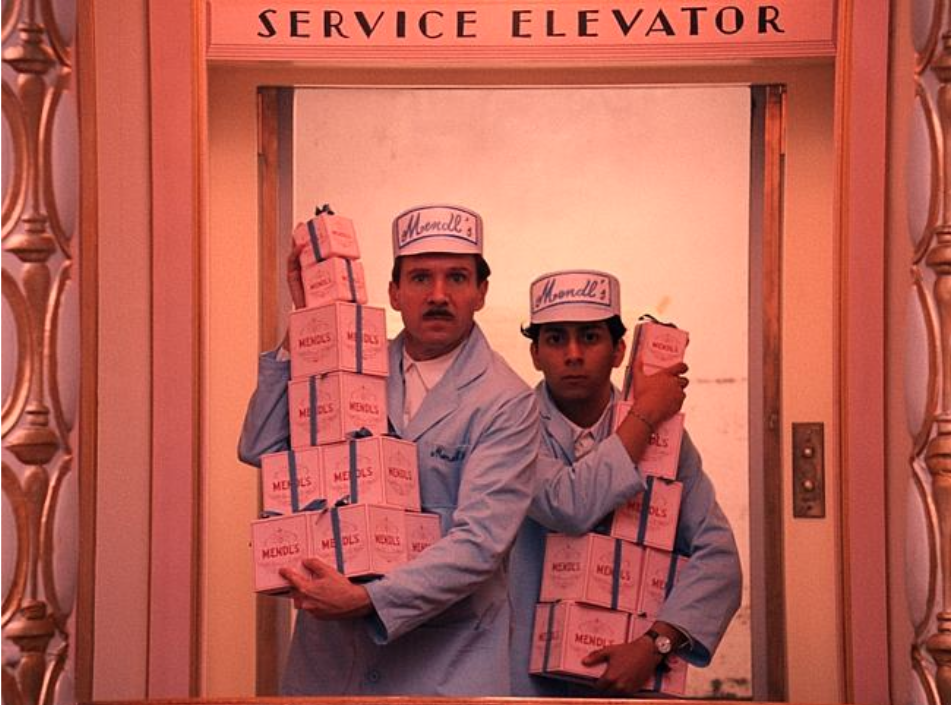A murder. A priceless painting. And frosted pastries. How are they connected? In this tragicomedy, the story follows a stoic lobby boy named Zero (Tony Revolori) and a courtly concierge (Ralph Fiennes) in the luxurious Eastern European hotel. It is set in a whimsical world packed with frenzied chaos, eccentric characters and exquisite visuals created by Wes Anderson’s imaginative artistic style.
The movie begins with an author (Jude Law) staying in this once-legendary hotel, and his encounter with the enigmatic owner, Mr Moustafa (F. Murray Abraham). Mr Moustafa reminisces about his adventures back when he was the trusted companion and protege of the charming concierge of the hotel, Mr Gustave. Their story starts off in the glorious grounds of the Budapest Hotel, and throughout the entirety of the film, they experience bloody murders and the theft of a priceless Renaissance painting, they travel from continent to continent with phone calls between concierge guild members, escape from the evil son of a dowager and have sweet pastries made by the wonderful Agatha (Saoirse Ronan).
Through the bright colour palettes and meticulously designed visuals of the story, Anderson implicitly conveys darker themes such as war, political oppression and racism. He then coats these with Mendl’s sugar to ease into frivolous comedy from the horrors of European history. These, as well as sentimental nostalgia and the importance of friendship, are hinted in the fictional 30’s-inspired world of Zubrowka.
Anderson has shown his talents of juxtaposing different elements in this film; the sudden scenes of violence are light-hearted but exciting at the same time, while Gustave’s character itself is a clash of different personalities such as austerity and pleasure-seeking, as well as absurdity and discipline. Anderson also illustrates the barbarism and war-like harshness imperiling the vanished world of sumptuous Eastern Europe in the period of the 1930s, right before the beginning of WW2 and the spread of fascism.
Every detail in the movie is wonderfully thought out, such as Zero drawing his mustache with a pen to look more like Gustave – who he looks up to, or Gustave’s love for poetry and his perfume “L’air de Panache”, which both demonstrate his sophistication and make his character more memorable. Moreover, it is suggested towards the end of the film that Gustave “certainly maintained the illusion with remarkable grace” and that he was an honest man beneath his exuberant and extravagant attitudes.
The film’s finely detailed and colorful frames add a whole new perspective to the story, transforming the simple yet complex chain of events to a delightful combination of slapstick comedy, drama and action. The all-star cast and Anderson’s picturesque style all make this film entertaining and wonderfully charming to watch.
“There are still faint glimmers of civilization left in this barbaric slaughterhouse that was once known as humanity.” – Gustave H.


